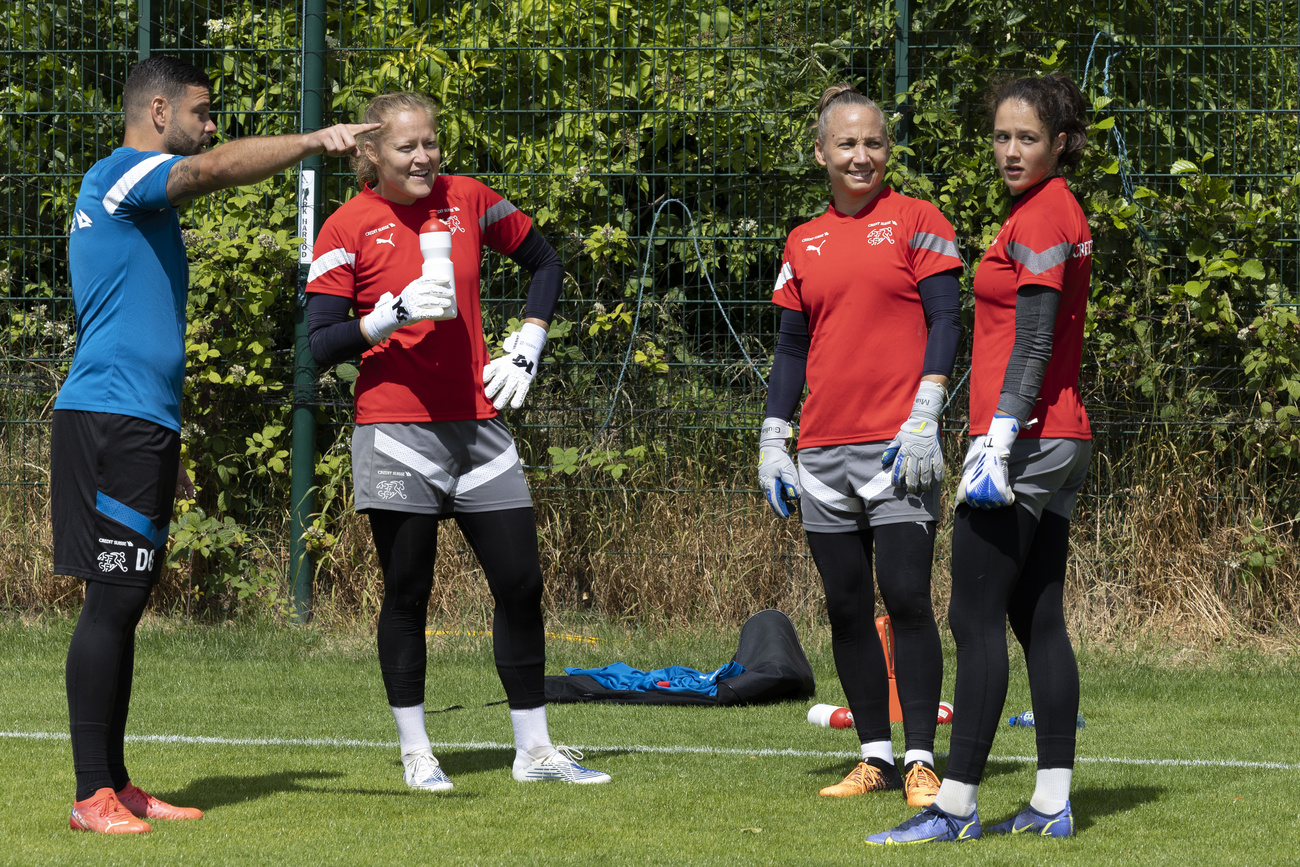
Swiss football clubs play key role for social integration

Football clubs are an important pillar for integration into Swiss society, also for immigrants, according to a new study.
However, immigrant women are less likely to join teams and it is more difficult for them to take over official positions in a club, the studyExternal link from the University of Bern said.
They are also more often victims of discrimination, according to the study authors.
The findings are based on information from 42 football clubs with 1,839 members in the German and the French-speaking part of the country as well as interviews and case studies.
“It proves that football is the key to successful integration,” said Dominique Blanc, president of the Swiss Football Association.
The survey presented on Wednesday found that participation in social events of the clubs, informal gatherings after training sessions in a relaxed atmosphere make a valuable contribution.
Respondents also said that active membership in a club helped their language skills and that coaches play a key role.

In compliance with the JTI standards
More: SWI swissinfo.ch certified by the Journalism Trust Initiative




























You can find an overview of ongoing debates with our journalists here . Please join us!
If you want to start a conversation about a topic raised in this article or want to report factual errors, email us at english@swissinfo.ch.